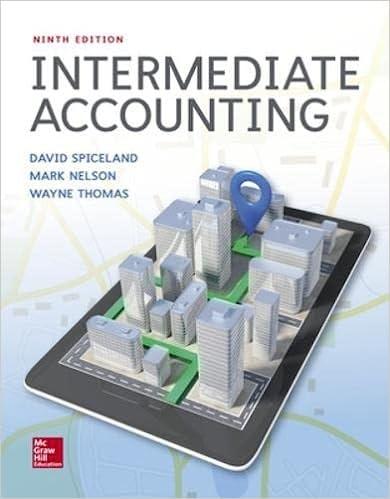Question
The entity conducted an independent appraisal of the value of its real estate in accordance with previously applicable national rules. The entity's financial analysts determined
The entity conducted an independent appraisal of the value of its real estate in accordance with previously applicable national rules. The entity's financial analysts determined that the values had not changed materially at the date of transition to IFRS. Under IFRS 1 First-time Adoption of International Financial Reporting Standards, the results of the valuation
a) an entity is permitted to use as deemed cost;
b) the entity is not permitted to use as deemed cost;
c) the entity is not required to use as deemed cost;
d) that information is ignored on transition to IFRS.
6. The date of transition to IFRS is.
a) the beginning of the earliest period for which the entity presents full comparative IFRS information in its first IFRS financial statements;
b) The beginning of the latest period for which an entity presents full comparative IFRS information in its first IFRS financial statements;
c) The end of the earliest period for which the entity presents full comparative information in accordance with IFRS in its first IFRS financial statements;
d) The beginning of the latest period for which the entity presents full comparative IFRS information in its most recent IFRS financial statements.
IFRS 2 Share-based Payment
7. In March, the company offered options to new employees, subject to shareholder approval. Such a grant was approved by shareholders in August. The program became effective in September. The grant dates for the options were.
a) March;
b) August;
c) September;
d) December.
8. If the equity-settled goods were received from suppliers in multiple instalments, the entity must estimate the fair value of the equity instruments granted as of
a) the date of receipt of the first batch of goods;
b) each date the goods are received;
c) the date of receipt of the last batch of goods;
d) The date the contract for the goods is signed.
9. On January 01, 20x7, an enterprise approved a plan under which 200 stock options were granted to each of 10 executives of the enterprise, provided that each executive would work for the enterprise for 4 years. The fair value of one option at the date of grant is equal to 500 tenge. Based on past experience, it is assumed that 3 out of 10 executives will leave the company in the next 4 years and therefore will not exercise the stock option. The amount of compensation costs in 20x7 will be
a) 0 tenge;
b) 100 000 tenge;
c) 175 000 tenge;
d) 700 000 tenge.
10. An enterprise grants stock options to its employees. In order for the options to be exercisable over the next 4 years, certain performance-related conditions must be met. In order to qualify for the options, the employee must continue to work for the company for the specified period. The expense, accordingly, is to be recognized
a) on the date of grant;
b) during the four-year period;
c) at the end of the four-year period;
d) at the end of the first period.
Step by Step Solution
3.45 Rating (152 Votes )
There are 3 Steps involved in it
Step: 1
1 The correct answer is a an entity is permitted to use as deemed cost IFRS 1 Firsttime Adoption of ...
Get Instant Access to Expert-Tailored Solutions
See step-by-step solutions with expert insights and AI powered tools for academic success
Step: 2

Step: 3

Ace Your Homework with AI
Get the answers you need in no time with our AI-driven, step-by-step assistance
Get Started


